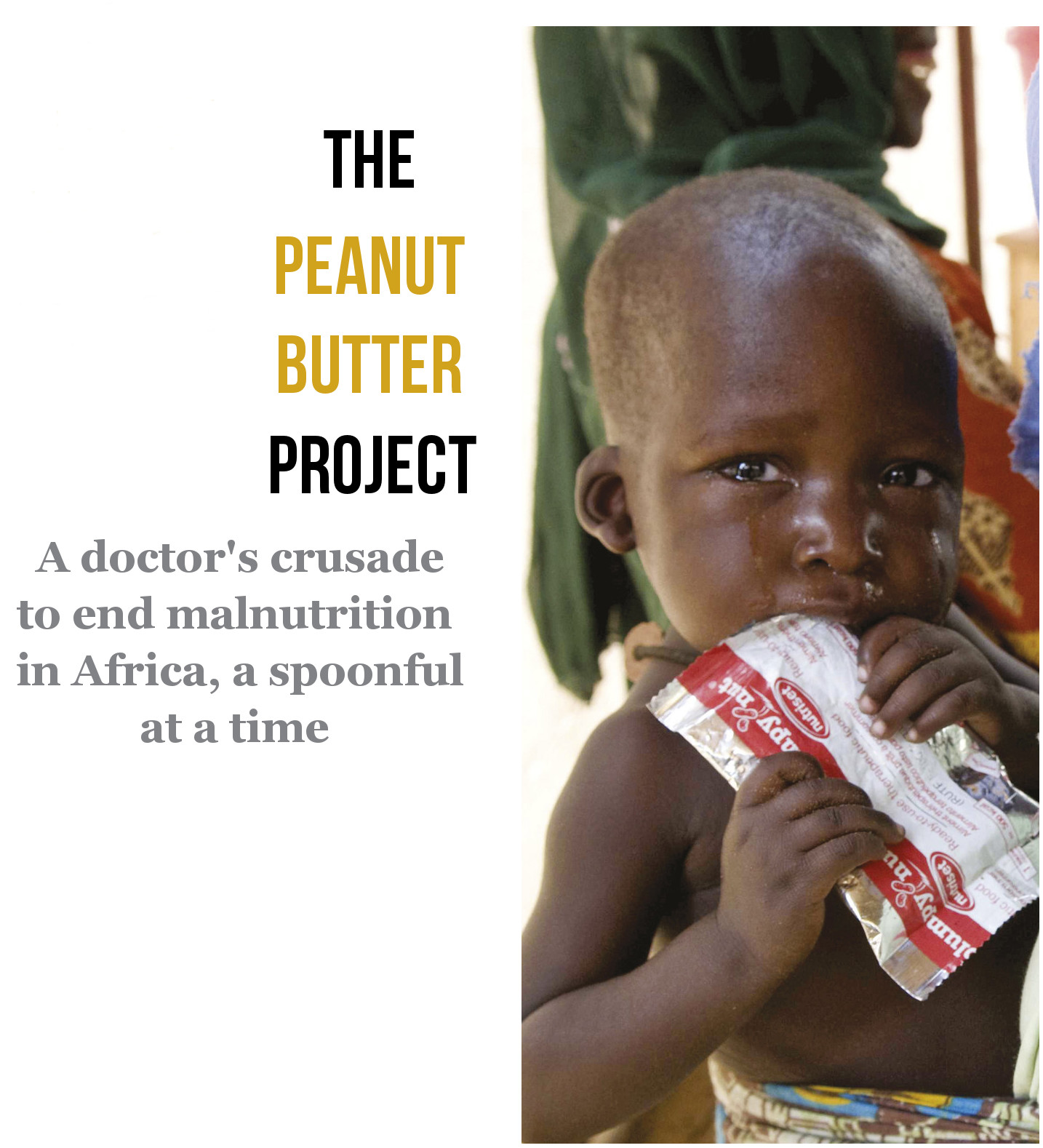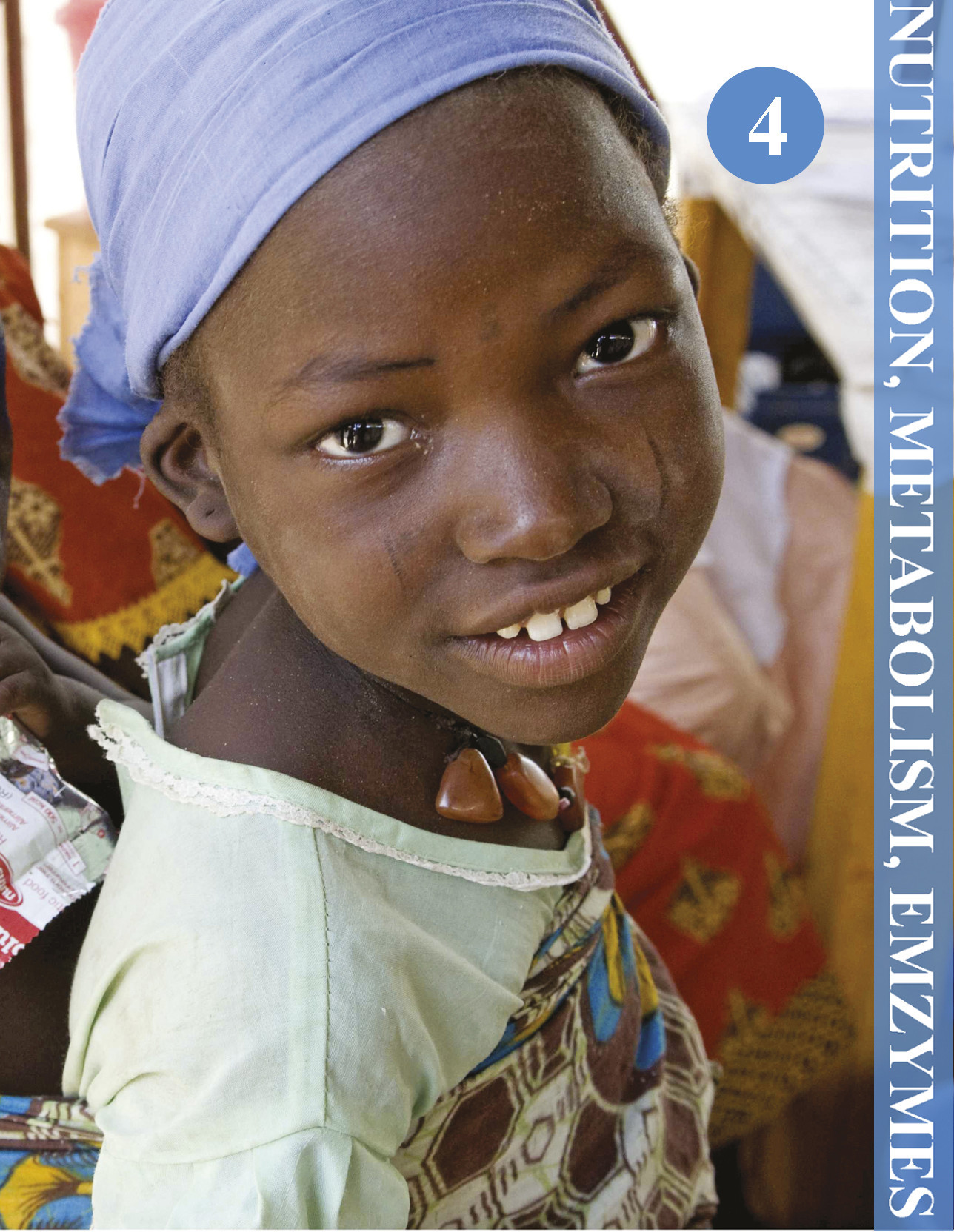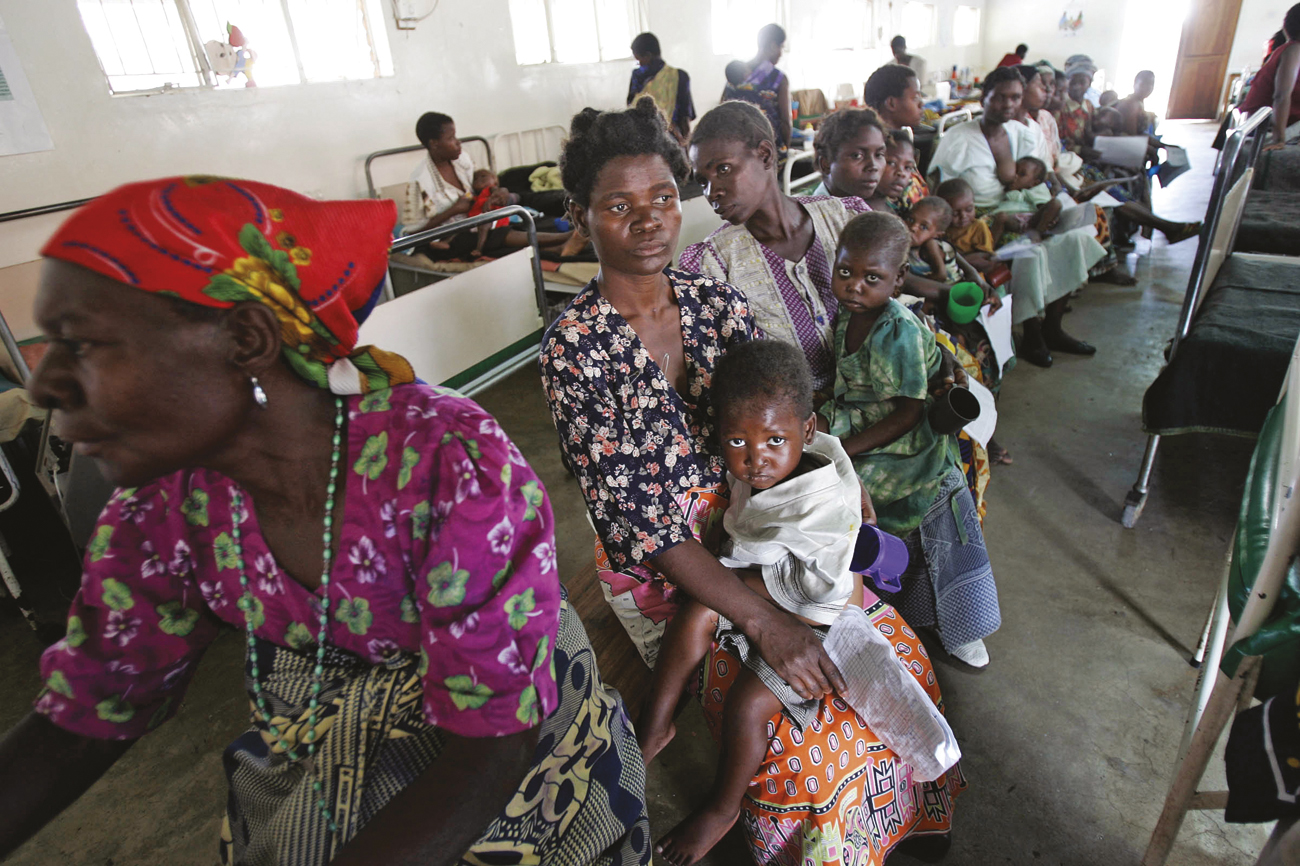2


 DRIVING QUESTIONS
DRIVING QUESTIONS
- What are the macronutrients and micronutrients provided by food?
- What are essential nutrients?
- What are enzymes, and how do they work?
- What are the consequences of a diet lacking sufficient nutrients?

3
4
 T A MEDICAL CONFERENCE IN 2003, DURING A PANEL ON MALNUTRITION, someone in the audience stood up and shouted at the presenter, “You're killing children!” The presenter, Mark Manary, was discussing a new method of treating malnutrition in kids that he had used successfully in some of the poorest countries in Africa. But it flew in the face of guidelines endorsed by the World Health Organization (WHO). Now, leaders in the field were angry.
T A MEDICAL CONFERENCE IN 2003, DURING A PANEL ON MALNUTRITION, someone in the audience stood up and shouted at the presenter, “You're killing children!” The presenter, Mark Manary, was discussing a new method of treating malnutrition in kids that he had used successfully in some of the poorest countries in Africa. But it flew in the face of guidelines endorsed by the World Health Organization (WHO). Now, leaders in the field were angry.
Manary, a pediatrician from St. Louis, Missouri, had firsthand experience with the standard WHO treatment. For much of the 1990s, he had devoted his life to it: in hospital wards in Malawi, a small, landlocked country in southeastern Africa, he faithfully administered fortified milk solutions to sickly children in accordance with WHO protocol for treating malnutrition. But even with this treatment, children continued to die, and only a small percentage ever got better. “On our best days only 10% of the kids would die. But still only 25% would recover,” he says.
Manary decided to find a better way. After searching around for potential alternatives, he settled on a surprising solution: peanut butter.

Peanut butter, he found, is well suited to the purpose. It's packed with nutrients, it doesn't require cooking, and—most important—it doesn't spoil easily and can be kept unrefrigerated in tropical climates for up to 3 months.
Manary began testing his peanut butter treatment in 2001. He gave his patients an ample supply of peanut butter and released them from the hospital. “Basically, what we did was empty the place out and send everybody home,” says Manary.
The hospital staff was appalled by his brashness, but the gamble paid off. Within weeks, 95% of the kids eating peanut butter had fully recovered.
Manary is now the director of Project Peanut Butter, a nonprofit organization using the American pantry staple to end malnutrition in Africa. Spin–offs of the organization have sprung up all around the globe, including in Haiti and South Asia.
Once vilified by the international aid community, Manary's method is now being lauded as a near panacea. Commentators have even likened the peanut butter treatment to the discovery of penicillin, with the potential to save millions of lives every year.
5